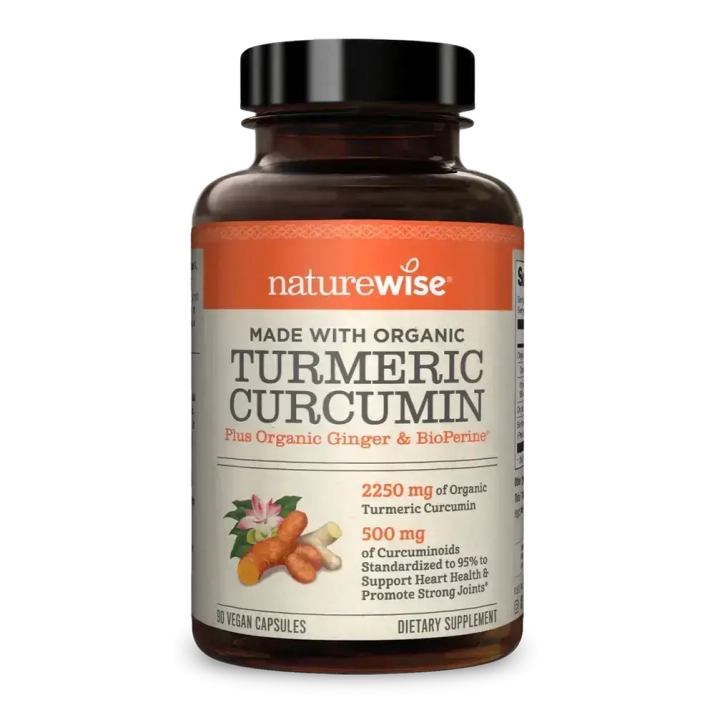Turmeric and Brain Health: The Potential for Neuroprotection

Turmeric, a spice commonly found in Indian and Middle Eastern cooking, has been used for centuries for its medicinal and culinary properties. In recent years, research has uncovered the potential of turmeric to support brain health and prevent neurodegenerative diseases. The active compound in turmeric, curcumin, has been shown to have potent antioxidant and anti-inflammatory properties, which may help to protect the brain from damage and promote overall brain health. In this article, we will explore the potential of turmeric and curcumin for neuroprotection and examine the current state of research in this area.
The Impact of Oxidative Stress on Brain Health
Oxidative stress, which occurs when the body is exposed to free radicals, can have a devastating impact on brain health. Free radicals can damage brain cells and contribute to the development of neurodegenerative diseases such as Alzheimer's and Parkinson's. The brain is particularly vulnerable to oxidative stress due to its high energy requirements and the presence of polyunsaturated fatty acids, which are prone to oxidation. турмерик, with its potent antioxidant properties, may help to neutralize free radicals and reduce oxidative stress in the brain.
Curcumin's Anti-Inflammatory Effects
Inflammation is also a major contributor to neurodegenerative diseases. The activation of microglia, the brain's immune cells, can lead to the production of pro-inflammatory cytokines, which can damage brain cells and contribute to the development of neurodegenerative diseases. Curcumin has been shown to inhibit the activation of microglia and reduce the production of pro-inflammatory cytokines, thereby reducing inflammation in the brain. This makes curcumin a potential therapeutic agent for the prevention and treatment of neurodegenerative diseases.
Neuroprotective Effects of Curcumin
Curcumin has been shown to have a range of neuroprotective effects, including the ability to reduce oxidative stress, inflammation, and apoptosis (cell death). It has also been shown to improve cognitive function and memory in animal models of neurodegenerative diseases. Additionally, curcumin has been shown to promote the growth of new neurons and improve the survival of existing neurons, which may help to prevent or slow the progression of neurodegenerative diseases.
The Role of Curcumin in Neuroplasticity
Neuroplasticity, the brain's ability to adapt and change in response to experience, is essential for learning and memory. Curcumin has been shown to promote neuroplasticity by increasing the expression of neurotrophic factors, such as brain-derived neurotrophic factor (BDNF), which are essential for the growth and survival of neurons. Additionally, curcumin has been shown to improve the function of synapses, the connections between neurons, which is essential for learning and memory.
Potential Therapeutic Applications
The potential therapeutic applications of curcumin for neuroprotection are vast. It may be used to prevent or slow the progression of neurodegenerative diseases such as Alzheimer's and Parkinson's. Additionally, it may be used to improve cognitive function and memory in individuals with these diseases. Curcumin may also be used to treat other neurological disorders, such as depression, anxiety, and stroke.

Current Research and Future Directions
While the current evidence suggests that curcumin has potent neuroprotective effects, further research is needed to fully understand its potential therapeutic applications. Current research is focused on developing more effective delivery systems for curcumin, as it has poor bioavailability. Additionally, further studies are needed to examine the efficacy of curcumin in human clinical trials.
Conclusion
In conclusion, the potential of turmeric and curcumin for neuroprotection is vast. With its potent antioxidant and anti-inflammatory properties, curcumin may help to protect the brain from damage and promote overall brain health. While further research is needed to fully understand its potential therapeutic applications, the current evidence suggests that curcumin may be a valuable adjunct therapy for the prevention and treatment of neurodegenerative diseases. As research continues to uncover the benefits of curcumin, it is clear that this ancient spice has a bright future in the prevention and treatment of neurological disorders.
- Industry
- Art
- Causes
- Crafts
- Dance
- Drinks
- Film
- Fitness
- Food
- Giochi
- Gardening
- Health
- Home
- Literature
- Music
- Networking
- Altre informazioni
- Party
- Religion
- Shopping
- Sports
- Theater
- Wellness
- News


